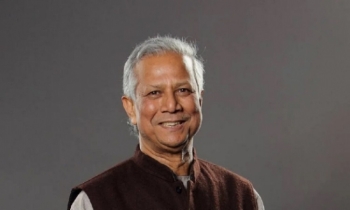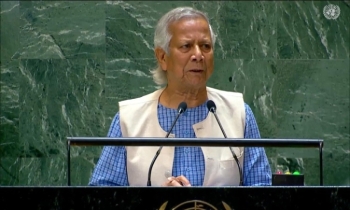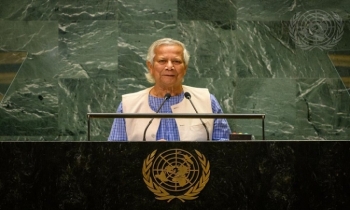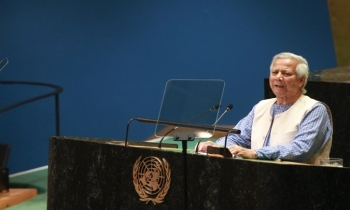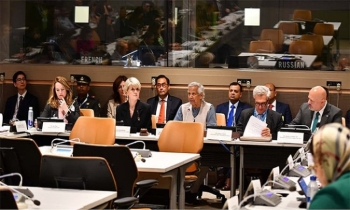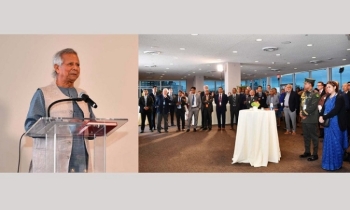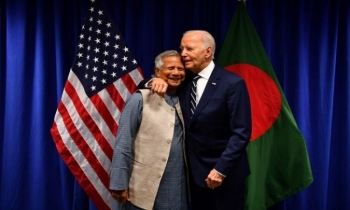How Bangabandhu’s 7th March speech ignited a nation
BI Desk || BusinessInsider
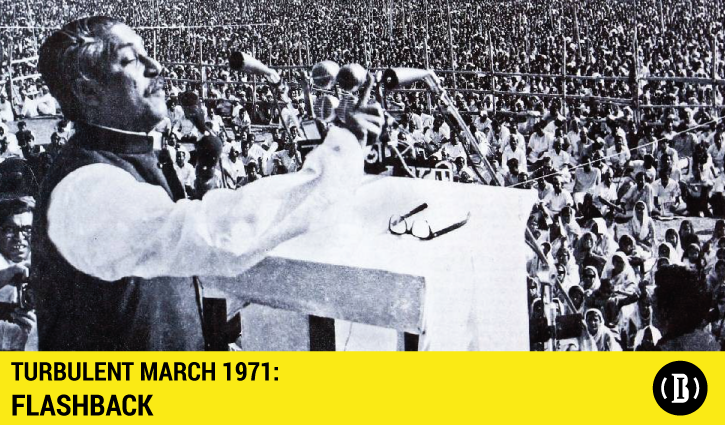
Business Insider Bangladesh illustrations
Bangabandhu Sheikh Mujibur Rahman on March 7, 1971, delivered a speech that inspired 7 crore Bangladeshis to take up arms against a brutal and powerful Pakistani regime and break the shackles of captivity. The epoch-making speech — delivered at the then-Racecourse Maidan, now Suhrawardy Udyan, in Dhaka — was the thrust behind Bangladesh’s War of Liberation in 1971.
In front of a mammoth gathering of over 10 lakh people, in his 19-minute impromptu speech, Bangabandhu declared, "The struggle this time is a struggle for our liberty. The struggle this time is a struggle for our independence".
Those two masterstroke statements were his concluding lines that ignited public emotions and united a nation. Those two statements soon became the defining call of independence of Bangladesh. It ended all the prior struggle to gain regional autonomy. It turned a movement into a fight for ultimate emancipation. That speech ignited a population battered by decades of oppression.
Bangabandhu didn’t rehearse the speech. There was no written script for it. West Pakistan disallowed the broadcast of the speech fearing its impact on the populace. But it survived in audio and video versions, with people making special efforts to record, make copies and circulate them.
Bangabandhu’s speech began with a clear reflection of the mind of suppressed people. He spoke for their cultural, social and economic emancipation. There were strong indications that the time for discussion is narrowing and the electorate demands must be met.
He asked the people to be ready to “bring everything to a total standstill”, and called upon them to “turn every home into a fortress” if a single bullet is fired. “Whether Bangali or non-Bangali, Hindu or Muslim, all are our brothers, and it is our responsibility to ensure their safety,” he said. He asked people to stop working on radio, television and the press if they did not report news of the liberation movement.
He also declared total non-cooperation and civil disobedience movement and declared a four-point demand to consider the national assembly meeting on March 25, 1971.
He demanded the immediate withdrawal of martial law, immediate withdrawal of all military personnel to their barracks, an inquiry into the loss of life, and immediate transfer of power to the elected representative of the people before the assembly meeting on March 25.
Just after 18 days of the speech, the Liberation War began as the West Pakistan Army launched Operation Searchlight on March 25. The operation was against civilians, intelligentsia, students, politicians, and armed personnel of East Pakistan. The killings continued till December 16, 1971.
On October 7 of 2020, the Cabinet declared March 7 as ‘Historic Day’ instead of the ‘National Historic Day’ so the day is observed nationally and internationally.
In 2017, United Nations Educational, Scientific and Cultural Organization (Unesco) recognised the historic March 7 Speech of the Father of the Nation as a world documentary heritage.
The historic March 7, the day of the nation’s long freedom struggle, will be observed on Monday in a befitting manner.
Prime Minister Sheikh Hasina on Monday will join a programme on “Historic March 7, 2022” at Bangabandhu International Conference Center virtually.
Awami League and different socio-political and cultural organisations have chalked out elaborate programmes on the occasion.
Bangladesh Betar and Bangladesh Television as well as private television channels and radio stations will air special programmes while national dailies will publish supplements marking the day.


